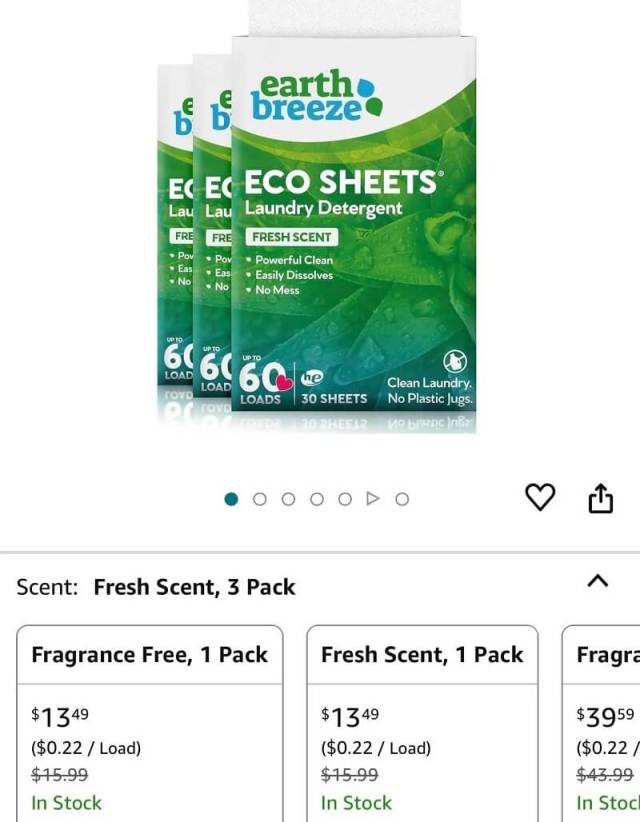A Reddit user's recent dumpster dive outside a Walmart store uncovered a surprising haul: 14 untampered packets of Earth Breeze Eco Sheets laundry detergent, all discarded by employees. Each packet contains 30 sheets, good for up to 60 loads of laundry.
This discovery sparked important conversations about retail waste and the accessibility of eco-friendly products.
What's happening?
A member of the r/DumpsterDiving community shared their find on the platform, posting a photo of the Earth Breeze packets with the caption, "Guess I'm good on laundry detergent for a few."


In a follow-up comment, the user explained that they found these items in a dumpster outside a Walmart, one of Earth Breeze's listed retailers.
The post quickly gained attention, with one commenter expressing disbelief: "I don't for the life of me understand why throw this away. Why not give them to employees?? These things are expensive af. I have been dying to switch and can't afford it. Great find, enjoy."
Why is product waste concerning?
This incident highlights two significant issues: retail waste and the affordability of eco-friendly products.
Retail waste contributes to our planet's overheating by unnecessarily adding to landfills and increasing dirty gas pollution. When usable products are discarded, it also wastes the resources and energy used in their production and transportation.
Moreover, the commenter's reaction underscores the frustration many consumers face when trying to make more sustainable choices. Eco-friendly alternatives are often perceived as expensive, creating a barrier for those who want to reduce their environmental impact but find it challenging to afford these products.
Is Walmart doing anything about this?
Walmart has not issued a statement about this specific incident. However, the company has made some commitments to sustainability in recent years.
In 2020, Walmart announced its goal to achieve zero pollution across its global operations by 2040. The retailer has also pledged to work with suppliers to avoid, reduce, and eliminate plastic packaging waste.
While these initiatives are positive steps, this incident suggests there may be gaps between corporate policies and day-to-day store operations when it comes to managing unsold inventory.
What's being done about product waste more broadly?
Fortunately, there are growing efforts worldwide to address retail waste and make eco-friendly products more accessible.
Some retailers partner with local charities to donate unsold items, reducing waste and helping struggling communities. Other brands are working to make sustainable options more affordable by matching the prices of conventional alternatives.
Outside of stores, greater towns and cities are also using platforms like Facebook to start "Buy Nothing Groups." Residents share and exchange unsold goods, reducing waste and helping people access items they can't afford.
As individual consumers, we can help by choosing retailers with strong sustainability practices, supporting brands that prioritize affordability and eco-friendliness, and advocating for better local waste management policies.
By working together, we can build a future where sustainable choices are both accessible and affordable for everyone. After all, saving money and resources while keeping harmful pollution out of the atmosphere is a win-win for both our wallets and our planet.
Join our free newsletter for cool news and actionable info that makes it easy to help yourself while helping the planet.









